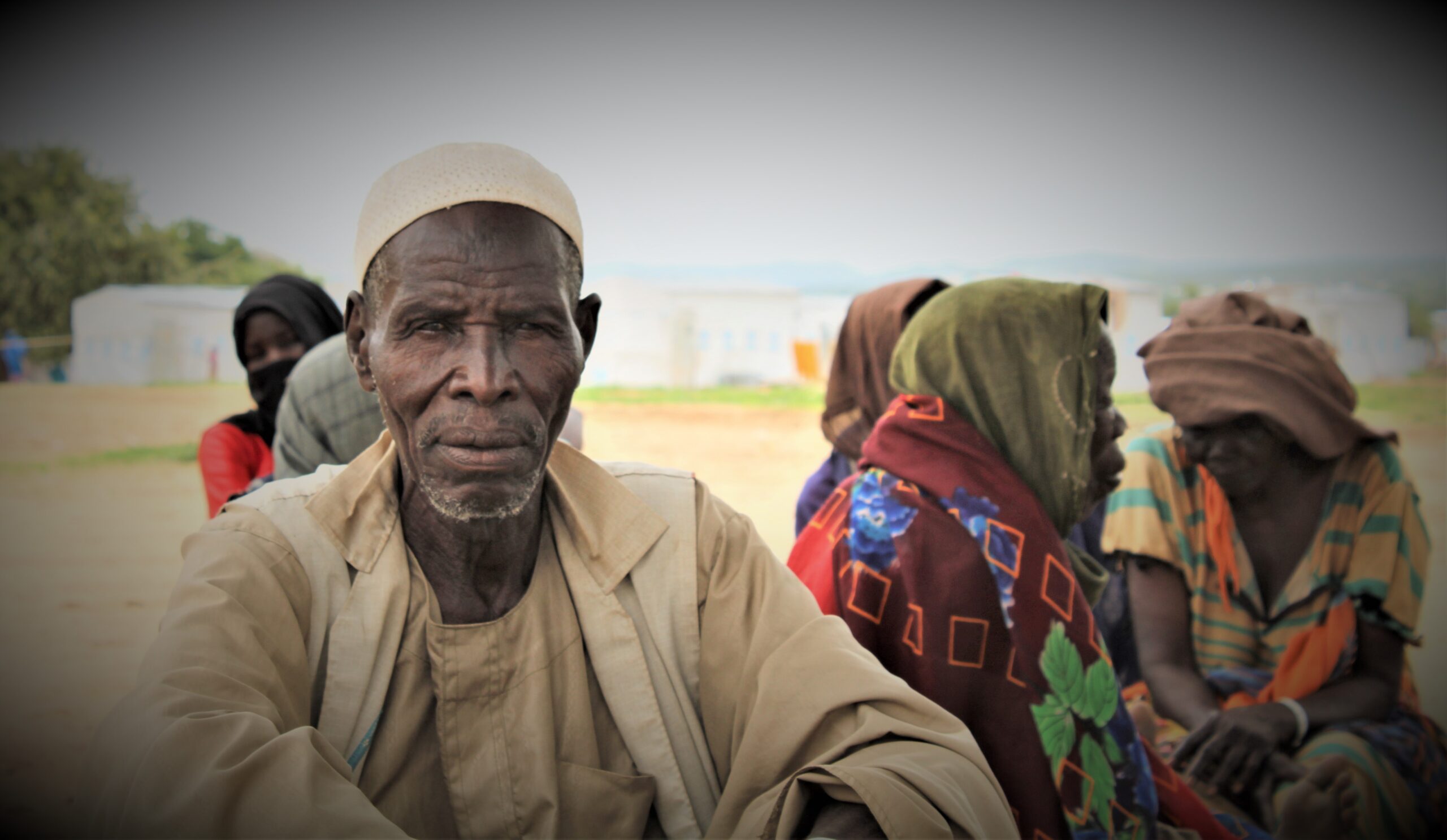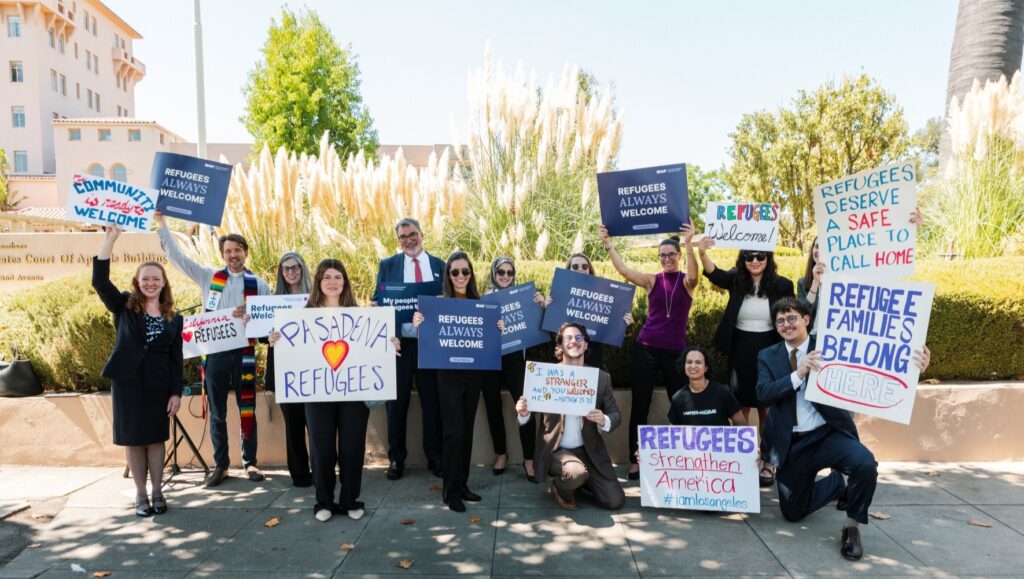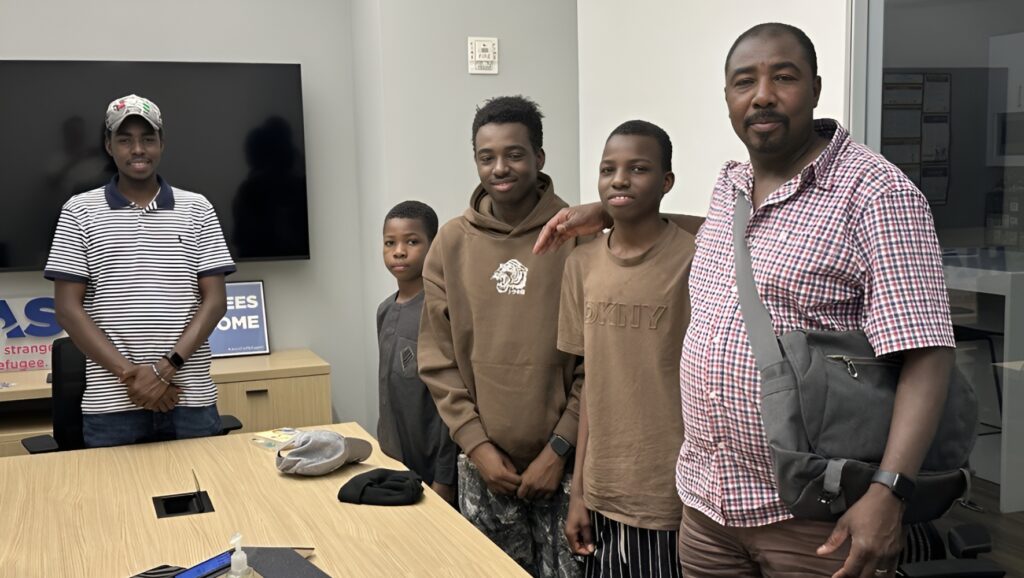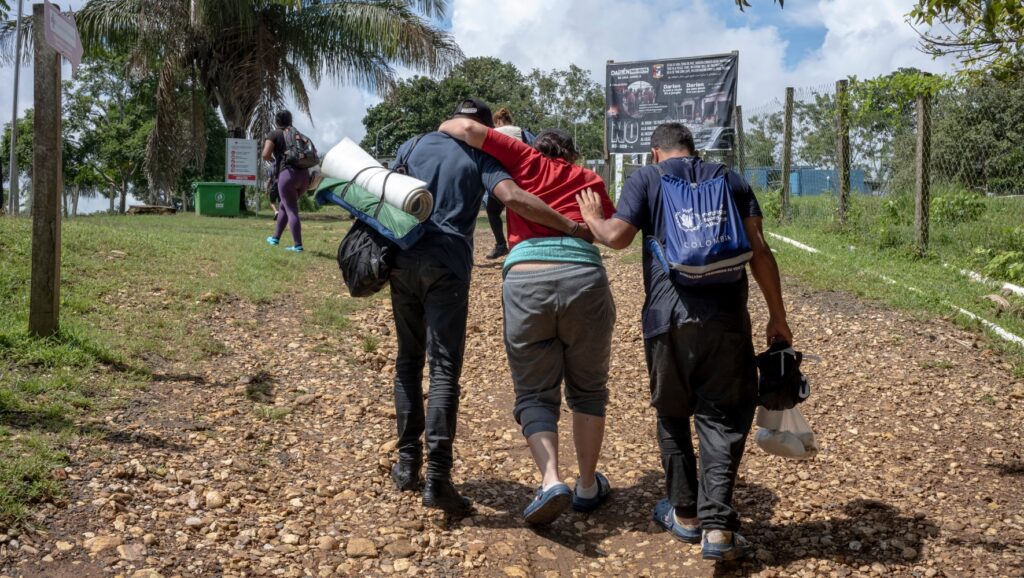
Though it has been eclipsed in the news by the violence in Israel, the refugee crisis in Chad, sparked by conflict in neighboring Sudan, remains as severe as ever. Hundreds of thousands of Sudanese nationals have crossed into Chad since the onset of fighting last April, and it is estimated that there will be 600,000 Sudanese in Chadian refugee camps by the end of 2023. The recent influx has worsened a refugee crisis in Chad that has persisted for nearly two decades.
Many of those who fled Sudan’s violence are preoccupied with the basic necessities of survival upon crossing the border. But the crisis has had a psychological toll as well as a physical one.
“I could see that the refugees were profoundly traumatized by the violence and loss they endured in Darfur and on their journey to Chad,” said Monim Haroon, advocacy and partnerships specialist at HIAS Israel who came to Chad this past summer as part of HIAS’ emergency response to the crisis.
According to many of the refugees Haroon spoke with, men of all ages were killed, arrested, or forcibly separated from their families. Women recounted witnessing their loved ones brutally attacked or killed before their eyes.
“I am still in disbelief that we are alive,” one woman told Haroon. “We witnessed death firsthand and passed by dead bodies everywhere. We were captured five times by militias on our way to Chad. They took everything we had, and my husband was beaten until he lost consciousness.”
Reaching the camps in Chad removes an immediate source of danger, but brings with it trauma that is difficult to resolve. Working in refugee camps in the eastern part of the country, HIAS Chad staff raise awareness about mental health challenges, introduce coping strategies, and promote services available in camps and transit centers. In the first few months of the crisis, HIAS provided mental health services to over 150,000 newly displaced people.
"Creating a safe space for refugees to express their feelings and emotions is vital, as is helping them to recognize, normalize, and manage psychological distress."Yenehun Ashagrie, HIAS’ regional technical advisor for mental health programming
Along with access to psychological first aid, staff make sure there are opportunities for refugees to share experiences and connect within group-based psychosocial support interventions. “Creating a safe space for refugees to express their feelings and emotions is vital, as is helping them to recognize, normalize, and manage psychological distress,” said Yenehun Ashagrie, HIAS’ regional technical advisor for mental health programming.
HIAS recognizes how violence, conflict, and displacement disrupt relationships and daily life, break down existing support systems, and have a devastating impact on mental health, overall wellbeing, and recovery. In Chad, staff has worked to facilitate community support groups and psychological support from both lay and professional providers, and ensure access to services for more specialized mental health support.
HIAS’ long-term strategy includes promoting community-based initiatives and ongoing support, supervision, and monitoring for these trained community members.
“The aim is to involve community members in delivering adaptable, low-threshold mental health and psychosocial interventions and task-sharing initiatives that offer lasting benefits to the refugees,” Ashagrie said.
These interventions occur amid an extraordinarily challenging situation in Chad. One refugee in the 200,000-person camp in Adre described to Haroon how difficult it is to sleep, since refugees live in overcrowded, makeshift shelters where families must squeeze into spaces measuring only about six feet.
“We sleep directly on the ground; I hold my child on my chest to protect him from the wet ground,” he said. “When it rains, we cannot sleep and must stand for hours because the shelter floods. I got sick from lack of sleep and sleeping on the wet ground, and there is currently no medicine available.”
The newly arrived refugees continue to struggle with trauma and are now faced with the adversity of living in a completely isolated area with no resources, no job opportunities, and complete dependence on NGOs and the UN for survival. This feeds their ongoing psychological distress and impacts their wellbeing.
But while prospects for the future are challenging, feedback indicates refugees want to participate in community activities that offer social interaction and income-generating opportunities, especially for women.
“The practical support extended to new arrivals instills a sense of support, hope, and safety,” Ashagrie said.



